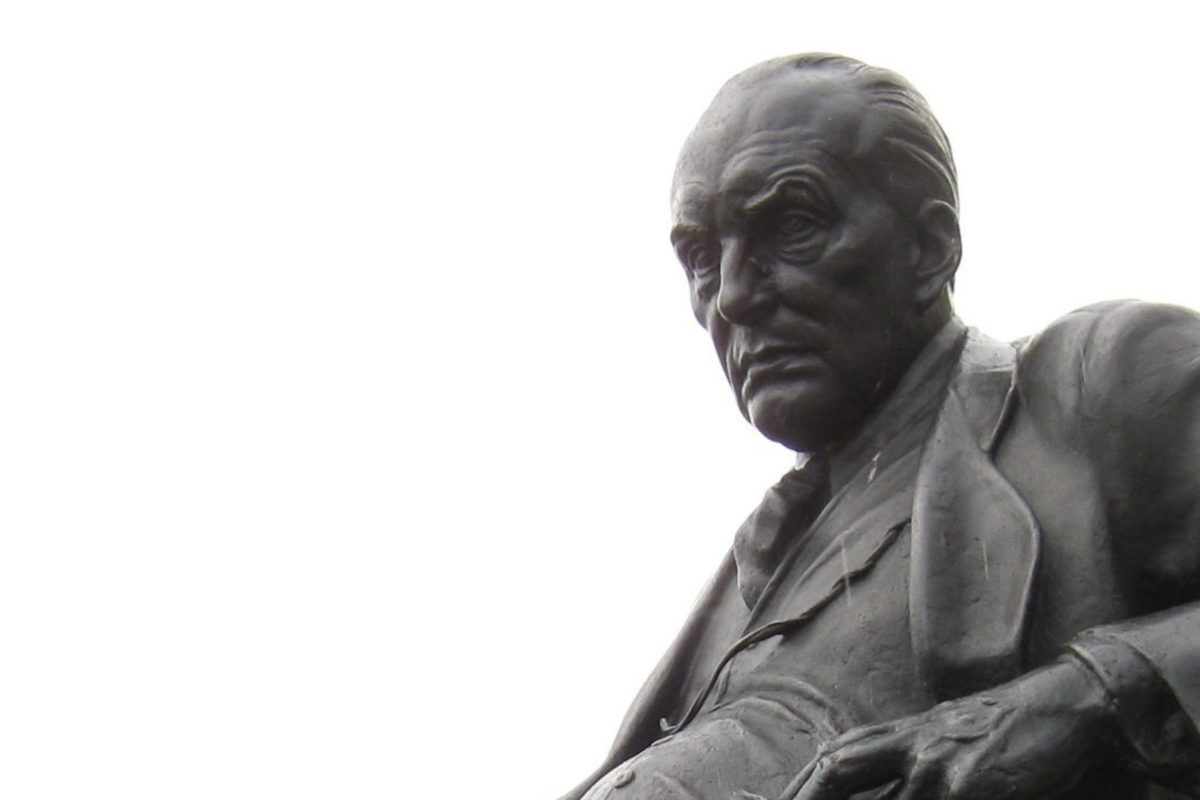“Human life is but a series of footnotes to a vast obscure unfinished masterpiece.”
~Vladimir Nabokov, Russian-American author
“Commentary” (1962) Pale Fire, New York, NY: G.P.Putnam’s Sons, p. 272
Vladimir Vladimirovich Nabakov, Влади́мир Влади́мирович Набо́ков, Vladimir Nabakov
22 April 1899 - 2 July 1977
Birthplace: Saint Petersburg, Russia
Russian-American author & educator

“Human life is but a series of footnotes to a vast obscure unfinished masterpiece.”
~Vladimir Nabokov, Russian-American author
“Commentary” (1962) Pale Fire, New York, NY: G.P.Putnam’s Sons, p. 272
Re-quote note: Although Nabokov didn’t include commas in his original line, it is often paraphrased with additional punctuation: “Existence is a series of footnotes to a vast, obscure, unfinished masterpiece.”
Extended excerpt [Fiction. Punctuation is original to cited source.]:
“If I correctly understand the sense of this succinct observation, our poet suggests here that human life is but a series of footnotes to a vast obscure unfinished masterpiece.” (p. 272)
Source: Library – Pale Fire (1962|G.P. Putnam’s Sons) Online Computer Library Center (OCLC) No. 289702
“Life is a great surprise. I do not see why death should not be an even greater one.”
~Vladimir Nabokov, Russian-American author
“Commentary” (1962) Pale Fire, New York, NY: G.P.Putnam’s Sons, p. 225
Extended excerpt [Fictional dialogue. Character names appear in text]:
“Shade: Life is a great surprise. I do not see why death should not be an even greater one.
Kinbote: Now I have caught you, John: once we deny a Higher Intelligence that plans and administers our individual hereafters we are bound to accept the unspeakably dreadful notion of Chance reaching into eternity.”
Source: Library – Pale Fire (1962|G.P. Putnam’s Sons) Online Computer Library Center (OCLC) No. 289702
“Our existence is but a brief crack of light between two eternities of darkness.”
~Vladimir Nabokov, Russian-American author
Speak, Memory (1951) New York, NY: Grosset & Dunlap, p. 1
Extended excerpt [Memoir]: “The cradle rocks above an abyss, and common sense tells us that our existence is but a brief crack of light between two eternities of darkness.” (p. 1)
Source: Library – Speak, Memory (1951) Online Computer Library Center (OCLC) No. 610310298
“Satire is a lesson, parody is a game.”
~Vladimir Nabokov, Russian-American author
Interview by Alfred Appel, Jr. (25-29 September 1966) Montreux, Switzerland; published in “An Interview with Vladimir Nabokov,” Wisconsin Studies in Contemporary Literature, Vol. VIII, No. 2, Spring 1967, Madison, WI: Board of Regents of the University of Wisconsin System, p. 138; online via JSTOR [subscription service] www.jstor.org
Extended excerpt [Interview]:
[Interviewer: Alfred Appel, Jr.]
“Q: Do you make a clear distinction between satire and parody? I ask this because you have so often said you do not wish to be taken as a “moral satirist,” and yet parody is so central to your vision.”
[Vladimir Nabokov]
“A: Satire is a lesson, parody is a game.” (p. 138)
Context note: According to the interview preface, interviewer Alfred Appel, Jr. had been a student of Nabokov’s while attending Cornell University in 1954. (p. 127)
Source link: “An Interview with Vladimir Nabokov” (Spring 1967) Wisconsin Studies in Contemporary Literature, online via JSTOR: www.jstor.org/stable/1207097?seq=1#page_scan_tab_contents
“The breaking of a wave cannot explain the whole sea.”
~Vladimir Nabokov, Russian-American author
The Real Life of Sebastian Knight (1941) Norfolk, Connecticut: New Directions, p. 105
Extended excerpt [Fiction – The Back of the Moon referenced here is a fictitious work]:
“Indeed, I believe that granting “sex” a special situation when tackling a human problem, or worse still, letting the “sexual idea,” if such a thing exists, pervade and “explain” all the rest is a grave error of reasoning. “The breaking of a wave cannot explain the whole sea, from its moon to its serpent; but a pool in the cup of a rock and the diamond-rippled road to Cathay are both water.” (The Back of the Moon.)” (p. 105)
Source: Library – The Real Life of Sebastian Knight (1941|New Directions) Online Computer Library Center (OCLC) No. 289896
“The clumsiest literal translation is a thousand times more useful than the prettiest paraphrase.”
~Vladimir Nabokov, Russian-American author
“Problems of Translation: “Onegin” in English” (Fall 1955) Partisan Review, Vol. XXII, No. 4, New York, NY: Foundation for Cultural Projects, p. 496; online via Howard Gotlieb Archival Research Center, Boston University, Boston, MA, hgar-srv3bu.edu
Extended excerpt [Essay – Nabokov is referring to the English translation of the Russian classic novel Onegin by Alexander Pushkin]:
“It is when the translator sets out to render the “spirit” – not the textual sense – that he begins to traduce his author. The clumsiest literal translation is a thousand times more useful than the prettiest paraphrase.” (p. 496)
Source link: “Problems of Translation: “Onegin” in English” (Fall 1955) Partisan Review, online via Howard Gotlieb Archival Research Center: http://hgar-srv3.bu.edu/collections/partisan-review/search/detail?id=326017
Learn more about Vladimir Nabokov| Here are a few good places to start –


